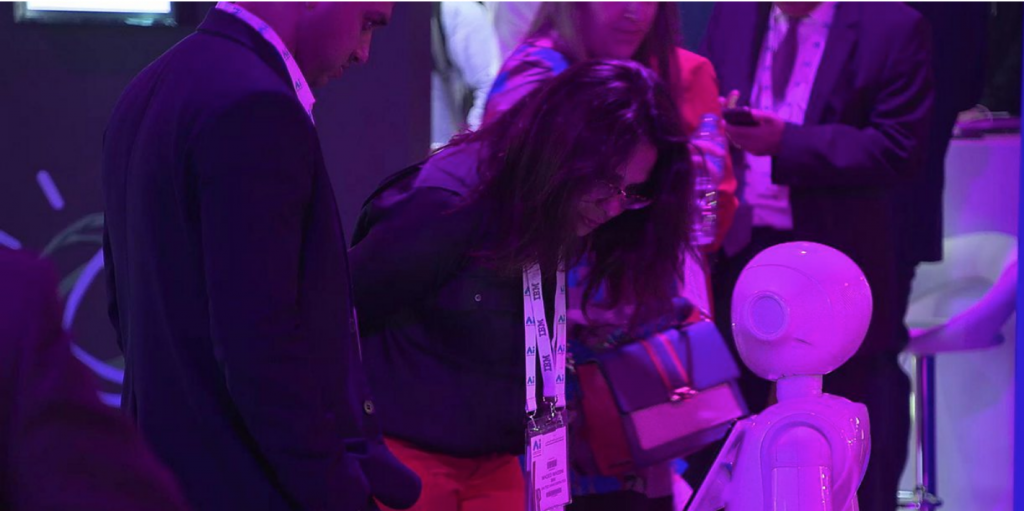
Researchers worry that AI bosses, as illustrated in this AI summit in Dubai, could drown out human voices and influence. (Source: BBC video)
Labor Unions Worry about Potential for AI to Hire & Fire Employees
It had to happen eventually. The friction between the use of robots and AI versus the loss of human jobs is a real concern in the UK. A new report from the Trades Union Congress or the TUC highlights the issue at the website bbc.com.
The big question in the UK, raised by labor unions, is whether humans should be hired or fired by an AI algorithm. Where do humans go for a review of the issue? To a human? To another AI algorithm?
TUC general secretary Frances O’Grady said the use of AI at work stood at “a fork in the road. …AI at work could be used to improve productivity and working lives. But it is already being used to make life-changing decisions about people at work—like who gets hired and fired. Without fair rules, the use of AI at work could lead to widespread discrimination and unfair treatment – especially for those in insecure work and the gig economy,” she warned.
Already, questions are being raised over job applications being rejected by algorithms without a human involved. And when an infraction occurs, and someone is fired by a program, they have no recourse at the moment to object to the firing.
The TUC’s report, written with the aid of employment rights lawyers and the AI Law Consultancy, argues that the law has failed to stay abreast of quick progress in AI in recent years.
The union body is calling for:
An obligation on employers to consult unions on the use of “high risk” or “intrusive” AI at work
The legal right to have a human review decisions
A legal right to “switch off” from work and not be expected to answer calls or emails
Changes to UK law to protect against discrimination by an algorithm
Discrimination by algorithms has been well-documented in recent years, often as an unintentional side-effect of using systems that fail to account for racial bias. One high-profile example is facial recognition technology, which has in the past been trained to recognize white faces more easily than those from other backgrounds. Such problems led IBM to abandon some of its efforts with the technology last year, labeling it as “biased.”
The TUC also pointed to recent reports of allegations from delivery drivers for Uber Eats who claimed they had been fired because the facial recognition software was unable to recognize their faces.
That led to drivers with 100% ratings and thousands of deliveries under their belts being fired for failing to complete an ID check, the affected drivers claimed. Uber denies this, saying a human review is always involved before it drops drivers from its platform.
read more at bbc.com







Leave A Comment